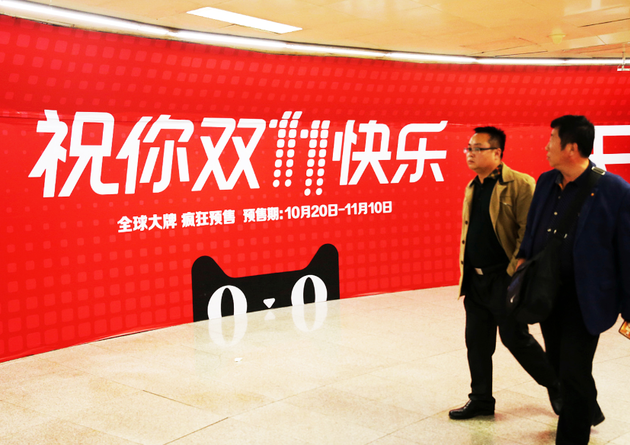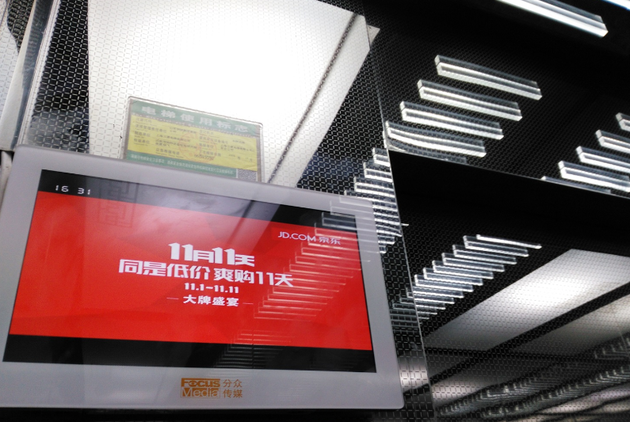Nov. 7 (NBD) -- Logistic companies are rubbing their hands for the annual online shopping festival ahead, as Chinese e-commerce giants Alibaba and JD.com are pulling all tricks to win the heart of customers for the world's largest online shopping day which falls on Nov. 11.
Consensus has been reached that the logistics is not only an important experience which customers increasingly value, but also a key for e-commerce platforms to attract brands and vendors. A systematic supply chain service containing storage, delivery and even customer service and after-sales service will be another helping hand for online retailers alongside with marketing.
NBD notices that competition between e-commerce platforms kicked off as early as two months ago. Alibaba and JD.com displayed their ungraded warehouses ran by robots and launched subsidy project for vendors. As the countdown to 11/11 shopping festival begins, the logistics battle is ready to get started.

photo/VCG
According to the preliminary estimates of State Postal Bureau of China, this year's online shopping festival (from Nov. 11 to 16) will see the handling and delivery of over 1.5 billion mails and packages, up 35% year on year. And the highest daily handling capacity is expected to hit 340 million pieces, tripling the regular number.
Such logistics pressure can't be digested by any single courier or simply conquered by manpower. The shopping festival needs to mobilize almost all the available logistics and social resources to form an automatic, intelligent, information-based and unmanned team.
Alibaba, for example, relies on the huge delivery network consisting of Sto Express, Yto Express, Zto Express and Yunda Express as well as Alibaba-backed Best Express. Besides, Alibaba's intelligent logistics unit Cainiao is to empower its partners via big data and intelligent storage, and to increase logistics resources including vehicles and airplanes by 30% working in collaboration with over 3 million delivery staff in the entire industry. JD.com, in the contrary, depends on its own logistic network.
Except for logistics, Alibaba and JD.com also launched the subsidy battle in intelligent warehouse allocation.
Cainiao recently announced that it will invest 1.5 billion yuan (226.5 million U.S. dollars) to subsidize vendors and logistics partners, encouraging them to distribute products closer to customers so as to provide better services.

photo/VCG
JD.com lifted its subsidies from previously set 600 million yuan (90.6 million U.S. dollars) to 2.1 billion U.S. dollars (317.1 million U.S. dollars) to offer discount, reduction and other preferences for vendors on the JD.com platform.
Yang Daqing, a researcher with the China Society of Logistics, said to NBD that the storage service links vendors to customers and constitutes as a midfield engine in the supply chain, and the intelligent storage counts as one of the high grounds in competition in an era of digital supply chain. Subsidy is a means to win big clients. Be it Cainiao or JD.com's logistics newtwork, to transform into a provider of supply chain services powered by big data, they need to forge deep and cohesive cooperation with VIP clients, Yang added.
Yang further commented that what vendors want most is well-targeted marketing and more efficient warehouse allocation and precise consumption forecast and high-quality logistics service is the key to win customers.
Email: gaohan@nbd.com.cn


 川公网安备 51019002001991号
川公网安备 51019002001991号





